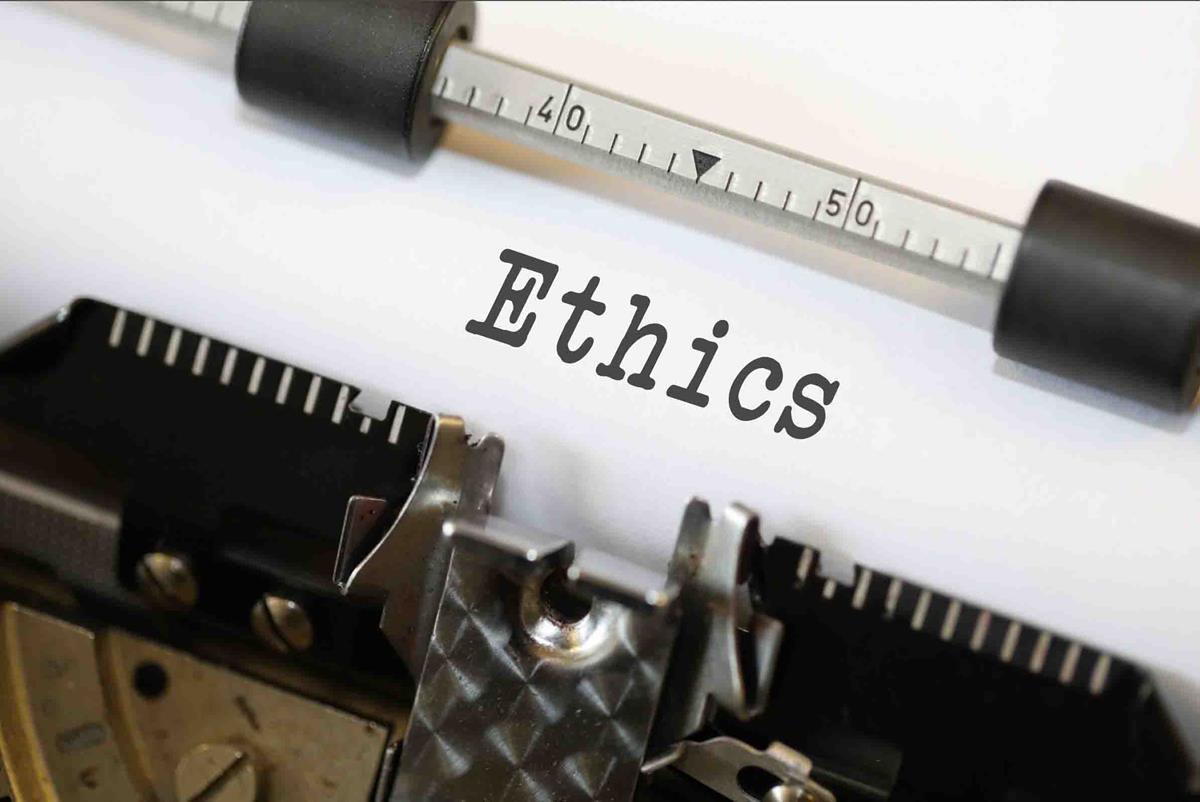
“Ethics (Greek ethika, from ethos, “character,” “custom”), principles or standards of human conduct, sometimes called morals (Latin mores, “customs”), and, by extension, the study of such principles, sometimes called moral philosophy.” (Microsoft® Student 2007 [DVD], 2006).
Ethics is the “code of moral principles and values that govern the behaviors of a person or group with respect to what is right or wrong” (Daft, 2010).
It has also been defined as “well-based standards of right and wrong that prescribe what humans ought to do, usually in terms of rights, obligations, benefits to society, fairness, or specific virtues. Ethics, for example, refers to those standards that impose the reasonable obligations to refrain from rape, stealing, murder, assault, slander, and fraud. Ethical standards also include those that enjoin virtues of honesty, compassion, and loyalty. And, ethical standards include standards relating to rights, such as the right to life, the right to freedom from injury, and the right to privacy. Such standards are adequate standards of ethics because they are supported by consistent and well founded reasons” (Velasquez, Andre, Shanks, & S, 1987)
Arthur Dobrin, Professor of Humanities at Hofstra University, Hempstead, New York adds an additional dimension and that is that real ethics requires the use of judgment, and this is distinct from rule-following. Judgment is acquired by struggling with situations that aren’t clear-cut; it requires self-reflection and openness to alternative possibilities.
O.C. Ferrell, Professor at Colorado State University, in his paper entitled ‘A Framework for Understanding Organizational Ethics‘ argues that there is a difference between an ordinary decision and an ethical one. He says that a “difference between an ordinary decision and an ethical one is that accepted rules may not apply and the decision-maker must weigh values in a situation that he or she may not have faced before. Another difference is the amount of emphasis placed on a person’s values when making an ethical decision. Whether a specific behavior is judged right or wrong, ethical or unethical, is often determined by the mass media, interest groups, the legal system, and individuals’ personal morals. While these groups are not necessarily “right,” their judgments influence society’s acceptance or rejection of an organization and its activities. Consequently, values and judgments play a critical role in ethical decision making, and society may institutionalize them through legislation and social sanctions or approval” (Ferrell).
From all the definitions it is clear that ethics has to do with character, principles or standards of human conduct, sometimes called morals, custom, habit or behavior.
Business ethics “involves applying general ethical principles and standards to business behavior” (Thompson, Strickland, & Gamble, 2005).
What then is a Code of Ethics?
A code is a set of rules, conventions, regulations, or set of laws. It follows therefore that a code of ethics is a system of rules, standards, regulations, or policies established and supported by consistent and well-founded reasons for the purpose of guiding and governing acceptable behavior, conduct, customs, habit, or morals for the mutual benefit of the organization and society at large.
It is a “formal statement of the organization’s values regarding ethics and social issues” (Daft, 2010).
A code in public administration refers to “rules and regulations: a system of accepted laws and regulations that govern procedure or behavior in particular circumstances or within a particular profession” (Microsoft Encarta Dictionary, 2006).
A code of ethics is used by an employer to inculcate certain core organizational values into the employee such as honesty, fairness, loyalty, punctuality, selflessness, integrity etc. A well crafted Code of Conduct will reflect what society would like to see in the employee and the organization as a whole.
The influence of the Code of Ethics extends beyond the confines of the work environment and includes the conduct of employees after work hours. The Code of Conduct for the Ghana Civil Service for instance states the following on pages 5 and 6 when defining what it means by conduct: “Conduct in this context, is behavior, attitudes, and character exhibited, by anyone within and outside the working environment”.
Works Cited:
Daft, R. L. (2010). Managing Ethics and Social Responsibility. In R. L. Daft, Management (9 ed.). South-Western, a division of Cengage Learning.
Ferrell, O. C. A Framework for Understanding Organizational Ethics.
Microsoft Encarta Dictionary. (2006). Code. Redmond, WA, USA.
Microsoft® Student 2007 [DVD]. (2006). Ethics. Microsoft® Student 2007 [DVD] Encarta Encyclopedia . Redmond, WA, USA.
Office of the Head of Civil Serviice. Code of Conduct for the Ghana Civil Service. Accra, Ghana.
Thompson, A. A., Strickland, A. J., & Gamble, J. E. (2005). Strategy, Ethics, and Social Responsibility. In A. A. Thompson, A. J. Strickland, & J. E. Gamble, Crafting and Executing Strategy:The Quest for Competitive Advantage, Concepts and Cases (14 ed.). Irwin , Boston, USA: McGraw Hill.
Velasquez, M., Andre, C., Shanks, T., & S, J. (1987). What is Ethics. Issues in Ethics IIE
, 1 (1).
Wikipedia Encyclopedia. (2010). Business ethics. Retrieved from Wikipedia: www.wikipedia.org
Wikipedia Encyclopedia. (2010). Corporate Social Responsibility. Retrieved from Wikipedia: www.wikipedia.org






